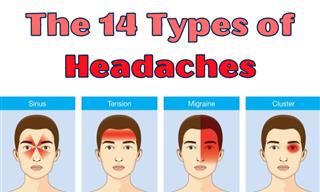Health experts say that an average healthy adult should drink around 4 to 6 glasses or about 2 liters of water every day. That should keep your body sufficiently hydrated.
Seniors, however, may need increased amounts of fluid to remain hydrated. We mustn't forget that aging adults often need reminders and encouragement to drink enough water to avoid dehydration. Moreover, seniors lose water faster with age. Their sense of thirst also decreases with age and hence older adults have to be extra mindful of their water intake.
An important point to remember here is that older people are also at a higher risk of overhydration as they have less ability to conserve sodium. Insufficient amounts of dietary sodium, along with excess fluids, can lead to dangerous overhydration in aging adults.
The recommended daily water intake for seniors is at least one cup of water for every 20 pounds (9 kg) of weight or at least 1.7 liters of fluid per 24 hours.
2. Environment
Where you live significantly impacts the amount of water you should consume. For example, hot or humid weather can make you sweat and requires an additional intake of fluid. Indoor heating can increase sweating and makes your skin lose moisture during the winter season and you would hence need more water to make up for that loss. Also, those living in altitudes greater than 2,500 meters (8,202 ft) are more prone to extra urination and more rapid breathing. This may lead to a greater fluid loss and consequently an increased need for water.
3. Illnesses or health conditions
If you have an infection or a fever, your body may lose water by as much as 200 ml per day for a rise of each degree Celsius in body temperature. Vomiting or diarrhea can also cause you to lose fluids rapidly. In such cases, you will need to drink more water and may even require oral rehydration solutions. Other conditions such as diabetes, bladder infections, urinary tract stones, gout, and constipation may also require enhanced water intake.
However, not all health conditions need you to take more water. For instance, heart failure and some types of kidney, liver, and adrenal diseases tend to damage the excretion of water and may require you to lower your water consumption.
4. Pregnancy or breast-feeding
Women who are expecting or breastfeeding generally need additional fluids to remain properly hydrated. This is because the body is working for two (or more).
The Institute of Medicine recommends that pregnant women should drink 2.4 liters (about 10 glasses of 250ml) of fluids per day and women who breastfeed should drink at least 2.71 liters of water and additional fluids daily depending on their thirst (about 12 glasses of 250ml).
5. Exercise or physical activity
It goes without saying that exercising or engaging in any activity that makes you sweat will also mean that you need to drink extra water to make up for that loss. Ideally, an extra 1.5 to 2.5 cups of water should be enough for short bouts of exercise.
However, if your exercise lasts for more than an hour, you would obviously require more water. The additional fluid you would need would depend on the amount of sweat you lose during the exercise, its duration, and the kind of activity you are involved in. If you are engaging in long bouts of extreme exercise, it would be better to use a sports drink that contains sodium as that will help replace the sodium lost in sweat, too.
Also, if you are active during the day or your work involves standing or walking a lot, you would need more water than someone who sits at a desk all day. For these people, an extra 2-3 glasses of water daily should be enough.
6. Your diet
Your water intake is also related to the kind of diet you follow. For instance, if you drink a lot of coffee and other caffeinated beverages, you are bound to lose extra water as a result of caffeine's diuretic effect. Also, if your diet is high in salty, spicy, or sugary foods, you should increase your water intake by a little bit. More water would also be needed if your diet doesn’t include a lot of hydrating foods that are high in water such as fresh or cooked fruits and vegetables.
Another point to note is that people taking too little protein are not able to maintain sufficient amounts of water in the blood. One of the most important roles of protein is to hold onto fluid in the blood. Thus, these individuals should certainly make it a point to boost their water consumption.
Share this post with your friends and family!
 Go to BabaMail
Go to BabaMail






























